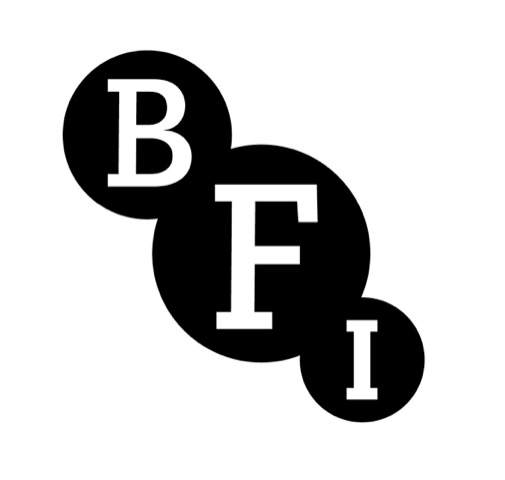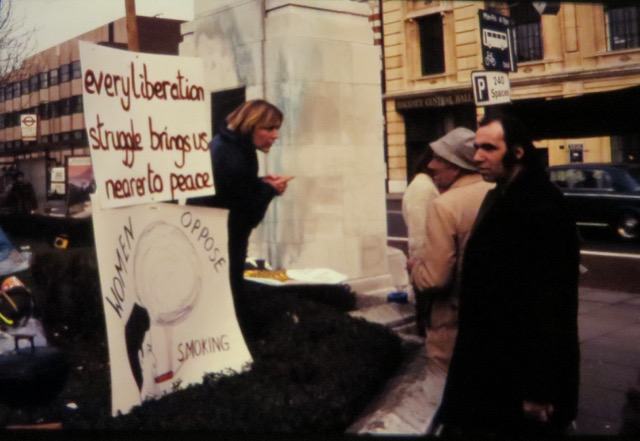Tate Britain, London, Weds 21st Feb, 7-9pm. £5/3.50. Book now.
Join Club des Femmes for a specially curated film night celebrating women’s engagement with the peace movement as part of Tate’s WOMEN IN REVOLT exhibition.
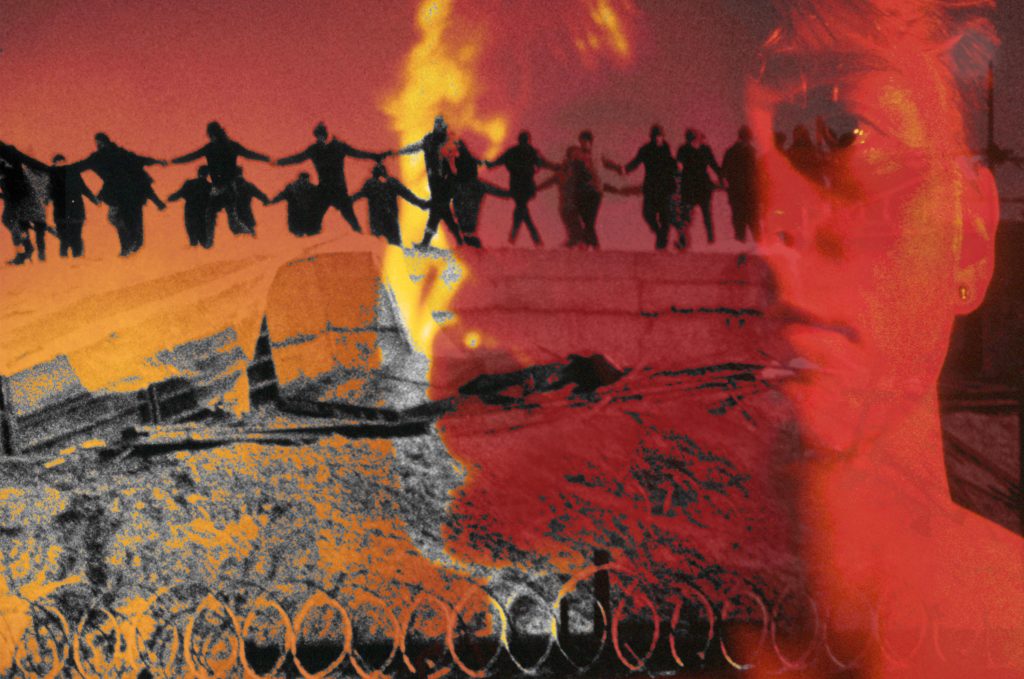
From legendary protest singer Peggy Seeger to contemporary artist filmmaker Sarah Wood, the experience of the women’s peace camp at Greenham Common is a secret thread running through British feminist art making. Inspired by viewing the rushes from Amanda Richardson and Beeban Kidron’s germinal Carry Greenham Home, Club des Femmes set up camp at Tate Britain to learn and think across Greenham’s feminist art practices, histories and liberation struggles. Our programme will include work by Alanna O’Kelly, Sandra Lahire, Sarah Wood, Lin Li and a sequence from the recently digitised Carry Greenham Home rushes.
Club des Femmes will be in conversation with Sarah Wood, Lin Li and Alanna O’Kelly.
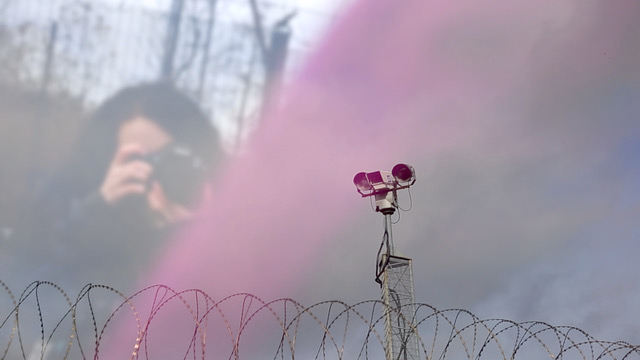
Read Sophie Brown on CARRY GREENHAM HOME from CDF’s Revolt, She Said 2018 season, and CDF’s So Mayer on the impact of our previous Greenham screenings at the Rio.
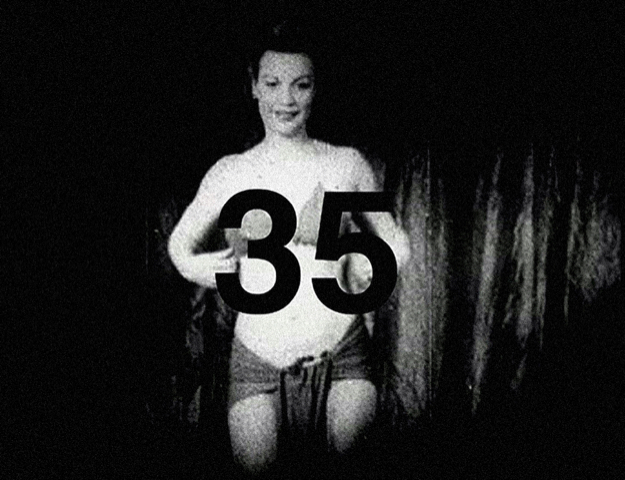
Chant Down Greenham (Alanna O’Kelly, 1984), 9:10 mins, digital
Sounds of the camp collide in the powerful form of keening. O’Kelly’s voice and body echo Greenham women chanting, drumming, whistling, laughing, weaved in with the noise of circulating helicopters that signals military aggression. Irish artist O’Kelly went to Greenham in 1983 to take part in ‘Sounds Around the Base’ that had 30,000 to 50,000 women surrounding the 9-mile perimeter fence all making sounds on the hour every hour.
Serpent River (Sandra Lahire, 1989) 31 mins, digital
Lahire’s searing anti-nuclear trilogy (Plutonium Blonde, Uranium Hex and Serpent River) are key films coming out of the feminist anti-nuclear / Greenham movement. Shot on 16mm, the politics of the film medium and the politics of the subject are one and the same, emerging as politicised queered and gendered bodies through a breath-taking alchemy of images and sounds. Serpent River looks at the dangers of Uranium mining near Serpent River First Nations community in Ontario, Canada.
Carry Greenham Home rushes (Amanda Richardson and Beeban Kidron, 1983), 12: 51 mins, digital
This part of the rushes presents a different style of video recording to much of the finished documentary. It is an extended sequence, shot largely in the dark, that shows the Greenham camps as both a place of vigil-keeping watch in dark times for the benefit of others and for peace, as well as a celebration of the togetherness, solidarity and creativity of the women. The sound brings the voices of the women together to make them louder and more beautiful. The images are almost abstract, lights and candles piercing the darkness as eternal symbols of hope. The sequence shows the something more sacred or mystical (which can mean many things), a significant element of the community alongside the political.
Witnessing Peace (Lin Li, 2020) 1 min, video
Originally from Hong Kong, now based in Scotland, Li’s camera captures a peace demonstration outside the Faslane Naval Base in Scotland, where Britain’s nuclear weapons are kept. Witnessing Peace shows some of the photographic activities during the demonstration, highlighting the importance of the freedom to record, part of the checks and balances system against state surveillance and power.
Three Minute Warning (Sarah Wood, 2012), 3 mins, video
The parallel histories of cinema and aviation revolutionised the twentieth century, generating irresistible fantasies of freedom and control. Three Minute Warning is a fast-forward history of the real impact of blue-sky thinking. You’ve had your three-minute warning: now is it time to resist?
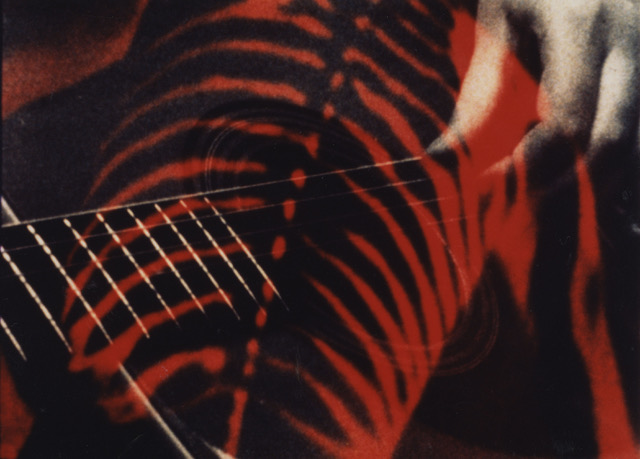
Club des Femmes would like to thank the BFI, Amanda Richardson, Beeban Kidron, Johanne Mullan, the Glasgow Women’s Library, Pratibha Parmar, Lucy Reynolds and Linsey Young.
The BFI National Archive has carefully preserved the original unedited footage shot for Carry Greenham Home, comprising almost 100 U-matic videotapes. This material was selected for digitisation through the BFI’s Lottery-funded Heritage 2022 project, among 100,000 items preserved on a variety of videotape formats selected from the UK’s regional and national archives and the BFI National Archive’s own collections. Thousands of these are now available for public viewing on a new service for UK libraries, BFI Replay.
